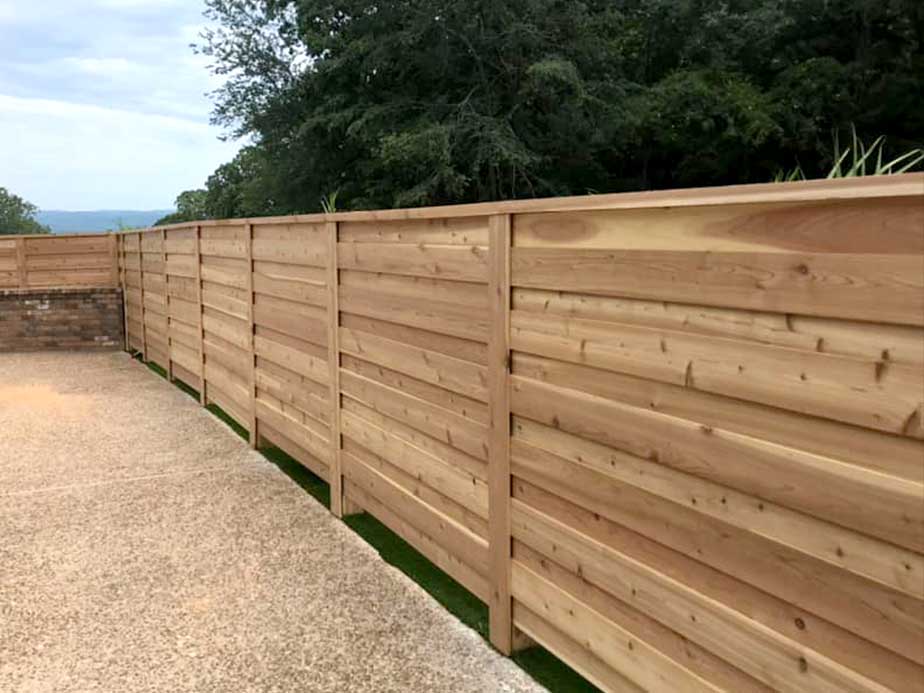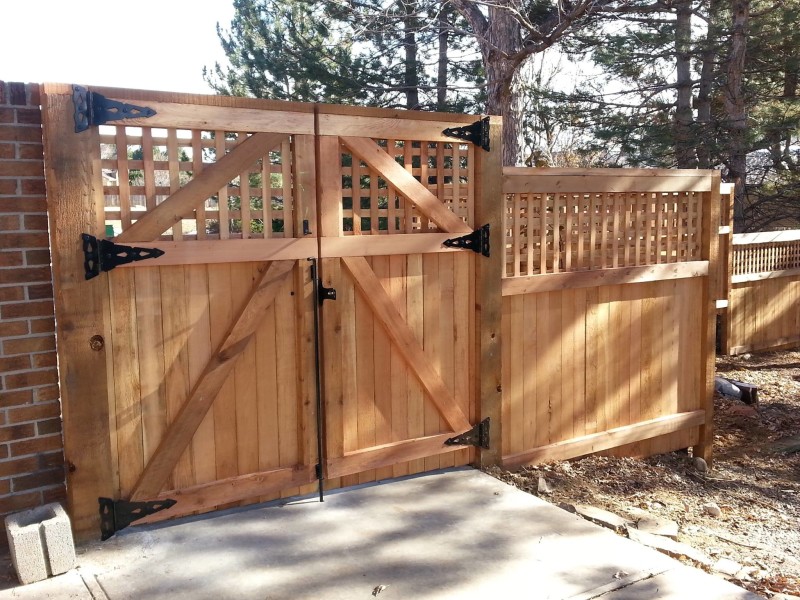All Categories
Featured
When you decide to mount a fencing around your residential home, it's important to understand the authorization requirements certain to your area. Right here's a comprehensive appearance at the licenses you might need for fencing setup.
Why Do You Need a Permit for Fence Installment? A fencing is greater than just a barrier in between residential properties-- it can impact safety and security, home worth, appearances, and also environmental conditions. Neighborhood governments call for licenses to guarantee that fencings satisfy certain standards and do not cause troubles for utilities, next-door neighbors, or the neighborhood as a whole. Permits also make certain that the setup adheres to zoning laws, developing codes, and security laws.
![]()
Types of Permits You Might Need. Building Permit. A building license is among one of the most common permits required for fencing installment. This permit guarantees that the fencing fulfills regional building regulations. For instance, if you're developing a fence over a certain elevation (typically over 6 feet), you'll likely require a structure license. The regional building division will typically assess the site and review strategies to make sure the structure is stable and does not block public rooms or develop risks.
Zoning Authorization. A zoning authorization guarantees your fencing complies with setback, elevation, and area regulations. Fencings may need to be established back a particular range from sidewalks, roads, or building lines to protect against obstruction or disturbance with energies.
HOA Approval. You might require to seek approval before mounting a fencing if your property is part of a home owners organization (HOA) HOAs commonly have standards that govern the visual appeals and structure of fencings to ensure they are in harmony with the area. You might require to submit your plans for authorization, and the HOA might limit fence design, material, or elevation.
Specialized Permits. In some areas, there might be additional permits required for specific situations. For instance, if your fencing is near a safeguarded environmental location or situated in a flood area, you may require to get specialty authorizations associated with ecological effect. In a similar way, if the fencing is in a location with underground energies, you might need to get clearance to stay clear of damaging pipelines or cords.
![]()
Easement or Energy Firm Consent. Before installing a fence, it's important to examine whether the residential or commercial property consists of an easement, such as an utility easement, which can affect where you can place your fencing. Easements are areas of land marked for public or private energies, and you might require consent from the utility business or other authority to develop within this area.
How to Figure Out What Allows You Required. To ensure that you're complying with all the required laws, below's just how you can establish the details permits required for your fencing setup:
![]()
Check Out Your Regional Federal Government Office: The initial step is to consult your regional building or zoning department. Several cities and regions have standards readily available online that specify what kinds of permits are required for fence setup. Otherwise, calling or seeing the office in individual can assist make clear the procedure. Check Your City's Site: Several districts give details concerning fencing setups and the authorizations needed with their main web sites. Some internet sites even allow you to submit applications online. Speak With a Fence Installation Expert: If you're not sure concerning regional regulations, an expert fencing professional can assist. They know with the allowing process and can lead you with the steps. The Consequences of Not Obtaining a Permit. Falling short to protect the required authorizations before installing a fence can result in significant consequences. You might be fined or required to get rid of the fence totally.
Final thought. Installing a fencing around your house can add both security and aesthetic appeal, but it's important to ensure you're following the lawful action in the process. Researching the specific license needs for your location, including structure licenses, zoning policies, HOA authorization, and utility consents, will aid guarantee your fence installation goes efficiently. Making the effort to recognize these requirements currently can conserve you from costly blunders and prospective legal concerns down the line.
Why Do You Need a Permit for Fence Installment? A fencing is greater than just a barrier in between residential properties-- it can impact safety and security, home worth, appearances, and also environmental conditions. Neighborhood governments call for licenses to guarantee that fencings satisfy certain standards and do not cause troubles for utilities, next-door neighbors, or the neighborhood as a whole. Permits also make certain that the setup adheres to zoning laws, developing codes, and security laws.

Types of Permits You Might Need. Building Permit. A building license is among one of the most common permits required for fencing installment. This permit guarantees that the fencing fulfills regional building regulations. For instance, if you're developing a fence over a certain elevation (typically over 6 feet), you'll likely require a structure license. The regional building division will typically assess the site and review strategies to make sure the structure is stable and does not block public rooms or develop risks.
Zoning Authorization. A zoning authorization guarantees your fencing complies with setback, elevation, and area regulations. Fencings may need to be established back a particular range from sidewalks, roads, or building lines to protect against obstruction or disturbance with energies.
HOA Approval. You might require to seek approval before mounting a fencing if your property is part of a home owners organization (HOA) HOAs commonly have standards that govern the visual appeals and structure of fencings to ensure they are in harmony with the area. You might require to submit your plans for authorization, and the HOA might limit fence design, material, or elevation.
Specialized Permits. In some areas, there might be additional permits required for specific situations. For instance, if your fencing is near a safeguarded environmental location or situated in a flood area, you may require to get specialty authorizations associated with ecological effect. In a similar way, if the fencing is in a location with underground energies, you might need to get clearance to stay clear of damaging pipelines or cords.

Easement or Energy Firm Consent. Before installing a fence, it's important to examine whether the residential or commercial property consists of an easement, such as an utility easement, which can affect where you can place your fencing. Easements are areas of land marked for public or private energies, and you might require consent from the utility business or other authority to develop within this area.
How to Figure Out What Allows You Required. To ensure that you're complying with all the required laws, below's just how you can establish the details permits required for your fencing setup:

Check Out Your Regional Federal Government Office: The initial step is to consult your regional building or zoning department. Several cities and regions have standards readily available online that specify what kinds of permits are required for fence setup. Otherwise, calling or seeing the office in individual can assist make clear the procedure. Check Your City's Site: Several districts give details concerning fencing setups and the authorizations needed with their main web sites. Some internet sites even allow you to submit applications online. Speak With a Fence Installation Expert: If you're not sure concerning regional regulations, an expert fencing professional can assist. They know with the allowing process and can lead you with the steps. The Consequences of Not Obtaining a Permit. Falling short to protect the required authorizations before installing a fence can result in significant consequences. You might be fined or required to get rid of the fence totally.
Final thought. Installing a fencing around your house can add both security and aesthetic appeal, but it's important to ensure you're following the lawful action in the process. Researching the specific license needs for your location, including structure licenses, zoning policies, HOA authorization, and utility consents, will aid guarantee your fence installation goes efficiently. Making the effort to recognize these requirements currently can conserve you from costly blunders and prospective legal concerns down the line.
Latest Posts
Your Roof Substitute Journey: A Total Walkthrough
Published Apr 20, 25
1 min read
Discover the Perfect Rug for Your Home
Published Apr 19, 25
1 min read
Financial Security for every single Stage of Life
Published Apr 19, 25
1 min read